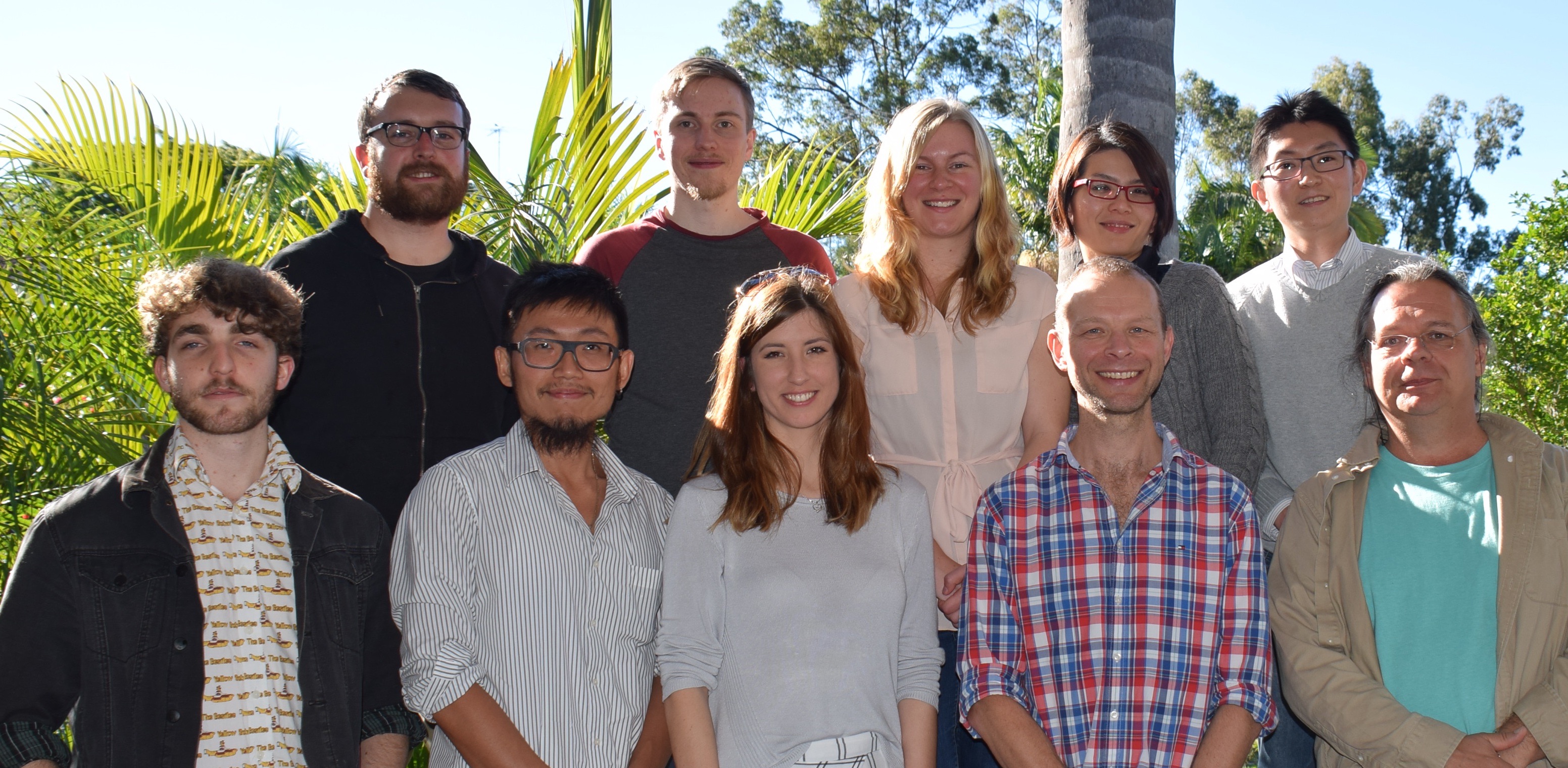This is an old revision of the document!
Boden lab: Bioinformatics
Research Topics
Thanks to major advances in biotechnology and instrumentation, biology is becoming an information centred science. The field of bioinformatics draws on computer science, math and statistics to enable discoveries in biological data sets. Our research aims to develop, investigate and apply bioinformatics methodologies to understand and resolve a range of open problems in genomics, molecular and systems biology. Recent applications involve protein sorting, nuclear protein organisation, mechanisms of transcriptional regulation, sequence and structure determinants of protein function and modification, and protein engineering.
Biological data are now available at scales that challenges our ability to process and analyse them. On the flip side, greater scale gives statistical power to distinguish biologically meaningful signals from mere noise or artefacts, i.e. to identify "drivers" and "determinants" of function and structure. Sometimes the number of features (that describe each observation) is so great that we must use (biological) expertise to constrain the search for signals.
Broadly put, our research aims to
- effectively manage the complexity of operations involved in analysing millions of sequence reads, thousands of genomes, and proteomes of thousands of dynamically regulated molecules, etc
- enable the seamless aggregation (or integration) of uncertain and incomplete data, typical of the next wave of biotechnology, across genomics, proteomics, structural biology, etc, and of using biological expertise
- empower the interpretation of "whole system" data, aimed at understanding of basis of disease and other scientifically relevant phenotypes, using statistics and machine learning
Funded Projects
Reconstructing protein populations of the past to explain functional specificity and engineer biological diversity (with Gillam, Kobe and Rost) (Australian Research Council Discovery Project 160100865; Jan 2016 - Dec 2018)
The aim of this project is to develop computational methods to construct entirely new proteins that operate in combinations Nature never tried. Computational reconstruction of enzymes that have been extinct for over 400 million years has revealed remarkable opportunities for biotechnological innovation. The intended outcomes are to develop bioinformatics methods to broaden the scope of ancestral protein reconstruction to include protein super-families, to establish what specific changes led to the evolutionary success of a protein, and to re-run evolution to generate proteins that perform in conditions suitable for industrial and agricultural applications, in particular the production of hydroxylated fatty acids for bioplastics.
Tracing nature's template: Using statistical machine learning to evolve biocatalysts (with Gillam, UQ) (Australian Research Council Discovery Project 120101772; Jan 2012 - Dec 2014)
Proteins like the P450 enzymes are highly versatile biological catalysts with untapped potential to improve the efficiency of chemical industries, lessen their environmental impact, reduce drug development costs, and help to remediate environmental contamination. In this project we use statistical machine learning to reveal how to redesign proteins for industrial use based on the examples Nature has refined over millions of years. By making and characterising experimentally a large library of mutant proteins we use statistical methods to detect previously hidden relationships between protein sequence and structural stability, then mine this data using machine learning to predict how to best design commercially useful proteins.
A systems biology approach to elucidate common principles and mechanisms underlying triplet repeat expansion associated genetic defects (with Balasubramanian, Monash University; Arumugam, UQ; Wiles, UQ; Sarsero, Murdoch Childrens Research Inst.) (National Health and Medical Research Council Project 1004112; June 2011 - Dec 2013)
Several human genetic diseases that affect the nervous system occur due to expansions of the DNA repeats in the genome. This project uses a combination of cutting edge technologies such as systems biology and genomics to uncover the common principles and use them to devise novel therapeutic strategies. Specifically, we develop and/or use a range of bioinformatics methodologies to integrate information in large-scale biological data sets to construct models capable of predicting the occurrence of expanding repeats.
Group members
- Mikael Boden, Group leader
- Marnie Lamprecht, Research officer
- Julian Zaugg, PhD student
- Alexandra Essebier, PhD student
- Gabriel Foley, PhD student
- Jhih-Siang (Sean) Lai, PhD student
- Woo Jun (Chris) Shim, PhD student
- Isaac Asamoah, MPhil student
- Rhys Newell, Honours student
- Brad Balderson, Undergraduate research student
- Ariane Mora, Undergraduate research student
- Jun Xu, Masters student
- Clarissa Womack, Undergraduate research student
- Kate Wathen-Dunn, Honorary group member Sugar Research Australia
The group anno 2016. From left: Rhys, Gabe, Sean, Julian, Marnie, Alex, Mikael, Yosephine, Chris, Burkhard (visiting).
Associate members
- Suzanne Butcher, PhD student (primary supervisor Christine Wells)
- Glen van den Bergen, PhD student (primary supervisor Alan Mark)
Alumni
- Yosephine Gumulya, Research officer, now Research Scientist at CSIRO
- Aniek Roelofs, Research intern from University of Amsterdam
- Ron Ramsay, Undergraduate research student
- Ralph Patrick, PhD student, now Postdoc at Victor Chang Cardiac Research Institute
- Timothy O'Connor, PhD student, now bioinformatician at Illumina San Diego
- Sitthichoke Subpaiboonkit, PhD student
- Patricia Vera Wolf, Master of Bioinformatics student
- Sam Dai, MPhil Student (primary supervisor Bostjan Kobe)
- Yufei Wang, Summer Research Scholar
- Sebastian Seitz, Visiting student from TU Munich
- Coralie Horin, Research Intern from Université Nice Sophia Antipolis
- Danny Lee, Biotechnology Honours student
- Elham Alhathli, Master of Bioinformatics student
- Ahmed Mehdi, PhD student, now Postdoc at UQ/Diamantina
- Diego Moncayo, Masters student
- Minh Duc Cao, Postdoc, now Postdoc at UQ/IMB
- Kai Willadsen, Postdoc
- German Ibarra, MPhil student
- Samir Lal, Honours student, now PhD student at UQCCR
- Benjamin Merlet, Research Intern from Université Nice Sophia Antipolis
…
